A Second Attempt at the Common Consolidated Corporate Tax Base
Adelina Marini, November 30, 2016
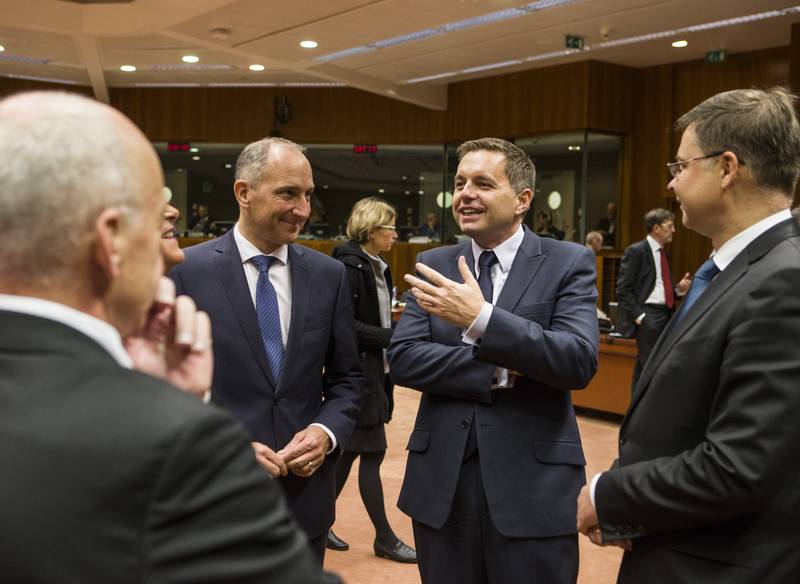 The European Commission is making a second attempt at implementing a common consolidated corporate tax base (CCCTB) after the previous attempt in 2011 failed. Chances of success are not too big this time either, but the Commission relies on the new approach towards one of the most controversial European dossiers to soften the resistance. It also relies on the different situation in the EU, which is both favourable and hostile at the same time – on the one hand there are already positive attitudes towards common efforts in fighting tax fraud and the evasion of taxes, but on the other hand common European ice is quite thin these days. The EC first proposed the CCCTB in 2011 with the idea of making the single market one step more single. Negotiations in the Council, however, stalled and ultimately the proposal was placed in the freezer.
The European Commission is making a second attempt at implementing a common consolidated corporate tax base (CCCTB) after the previous attempt in 2011 failed. Chances of success are not too big this time either, but the Commission relies on the new approach towards one of the most controversial European dossiers to soften the resistance. It also relies on the different situation in the EU, which is both favourable and hostile at the same time – on the one hand there are already positive attitudes towards common efforts in fighting tax fraud and the evasion of taxes, but on the other hand common European ice is quite thin these days. The EC first proposed the CCCTB in 2011 with the idea of making the single market one step more single. Negotiations in the Council, however, stalled and ultimately the proposal was placed in the freezer.
Last year, when it presented its action plan, the EC announced its intention of resurrecting the project, but this time it decided to split it in two parts. The first step is gaining a common base and the second step is consolidation. A common base would mean a common set of rules for taxation of company profits, keeping in consideration all the different exceptions and allowances. For example, the common base would guarantee that all member states allow for an equal depreciation of assets or allow as non-taxable a certain type of expenses. This means that the calculation of the taxable base would be much easier throughout the EU. Consolidation means that multinational companies would be able to add up all their profits and losses from daughter companies in different member states and calculate their net profit or loss on EU level.
When the tax base of the company is established, its taxable profit will be distributed between member states in which it operates using a special formula, which will account for three factors: the company’s assets in the respective member state (buildings, machinery); labour that the company is using in the country (number of employees or cost of labour); sales that the company has made in the member state, with this factor being calculated based on the destination of the produced goods (where will they be sold, or where the service is being done).
This is one of the major changes compared to the 2011 proposal. The other alteration is that the CCCTB will now be mandatory for all companies with incomes exceeding 750 million euro per annum. In the previous proposal, volunteering was one of the most controversial elements. Small and mid-size enterprises (SME) as well as start-ups can join the system voluntarily if they wish to take advantage of the possibility to save on expenses. Currently, 30% of taxes paid by SMEs go for administration. Expenses become much higher when the company expands beyond the borders of a single member state. The EC assures that with CCCTB those expenses will be drastically lowered.
Another new moment in the proposal is that the research and development expenses will have a large discount. If a company is spending, for example, 30 million euro for R&D, it will be entitled to deducting all the expenses from its taxable income – 30 million euro. Besides, the company receives an additional 50% discount for the first 20 million, which is 10 more million. 25% more are discounted for the next 10 million. So, the company can deduct a total of 42.5 million euro from its tax base.
With this proposal, the EC aims at discouraging taking out loans. Currently, the taxation systems in member states are favouring loans by allowing deduction of interest. With the CCCTB, the Commission offers a similar treatment of equity, for when there is preferential treatment of loans companies tend to get in debt. This makes them more vulnerable and economies more crisis-prone. The EC proposes an instrument which will award tax breaks to companies, which are financed on the capitals markets. The proposal is for the tax break to be valid for ten years.
The Commission insists that the CCCTB does not mean harmonisation of tax rates. Member states will continue to be independent in setting their corporate tax rates. The CCCTB will make corporate tax more transparent in the EU and thus make tax competition in the Union fairer, the EC hopes. The proposal was announced at the end of October and was discussed for the first time by the EU ministers of finance on November 8. The public part of the discussion was quite general and as a whole demonstrated a positive attitude towards the new proposal. This, however, cannot be considered a success of the EC’s second attempt, for the essential work on the document has not begun yet. When discussions of the document begin, article by article, then it will become clear whether the new mission will turn out to be possible.
European Commissioner for Taxation Pierre Moscovici (France, Socialists and Democrats) underlined that the two-stage approach does not mean that the first step will be made and then deliberations will start on whether to move to the second one. French Minister of Finance Michel Sapin hailed the proposal and pointed out that this is a very opportune moment for it. His Dutch colleague, Jeroen Dijsselbloem, who is also Eurogroup boss, gave a lukewarm approval of the proposal. He said it is right to use the current public and political debate, but warned that the proposal needs to be reviewed in detail and gain the approval of national parliaments.
Italian Finance Minister Pier Carlo Padoan supported Pierre Moscovici by stating that the proposal must be accepted in its entirety and not be boiled down to just its first part. Luis de Guindos (Spain) said that the new proposal is far more acceptable than the previous one. Many of his colleagues also hailed the two-step approach. De Guindos did voice concerns about whether the CCCTB could have negative impact on corporate tax collection. Reserves could be felt in almost all ministers, but the strongest ones came from Poland and Hungary. The issue is especially important to Poland because, in the words of Minister Mateusz Morawiecki, in the last eight years revenues from corporate tax have doubled. He welcomed the two-step approach, but stated that consolidation is a very complex question.
Minister of National Economy of Hungary Agnes Hornung was far more reserved. She questioned whether the CCCTB will achieve its goals regarding competitiveness. Budapest is sceptical of this and prefers that more attention is paid on the stricter implementation of OECD rules on base erosion and profit shifting. Reserves were put forward by Denmark as well, which worries that the Directive may lower the tax base and thus tax revenues. Denmark is also concerned about the efficiency of national measures for fighting tax evasion. Copenhagen is of the opinion 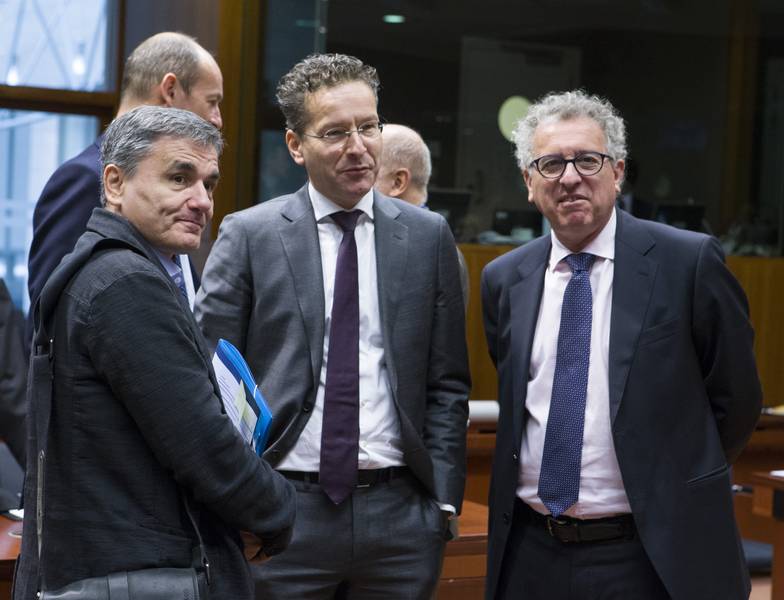 that stricter measures against tax evasion will not work well with a harmonised tax base.
that stricter measures against tax evasion will not work well with a harmonised tax base.
Romania, too, was concerned about tax incomes. In her opinion, some member states will benefit from the CCCTB at the expense of others. Besides, Bucharest worries that the project may impact member states’ budget planning. The most expected reaction was of Irish Finance Minister Michael Noonan, for Ireland has for years been violently opposed to any measures, which could affect its corporate tax. Mr Noonan’s reaction was composed. He called the proposals “very interesting”, but preferred that initially member states support the anti-hybrid rules, so that the full implementation of OECD recommendations against BEPS is guaranteed.
The Irish minister welcomed the idea that the CCCTB is separated in two stages, but warned that he needs to consult with the government and parliament, for the proposal could bring “a significant narrowing of the Irish corporation tax base”. A total of 14 states took part in the discussion. The Minister of Finance of Slovakia Peter Kažimír, who presides the Council until the end of the year, was unusually frank in admitting that, coming from a small member state, he too has reserves, but the current environment is different. There is movement in this direction globally. “I hope God will bless the Maltese and Estonian presidency and we'll move [the dossier] further. Taxation are always difficult issues”, summarised the minister.
Translated by Stanimir Stoev
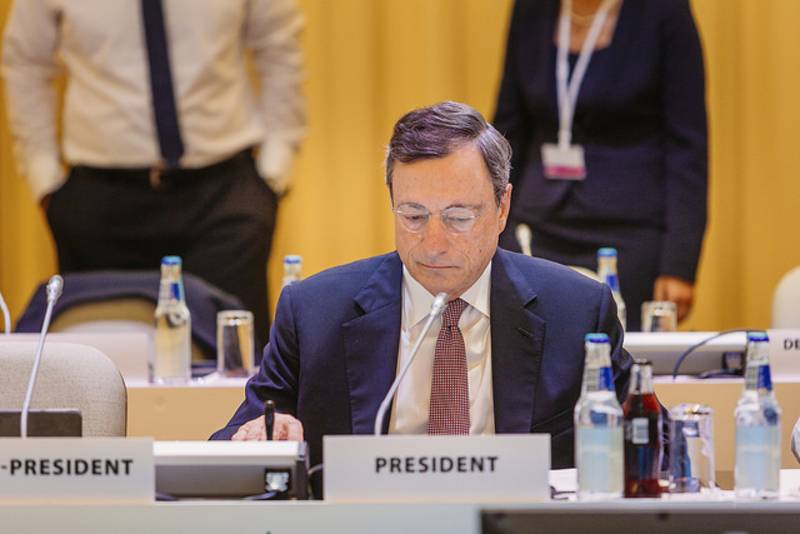 Mario Draghi | © ECB
Mario Draghi | © ECB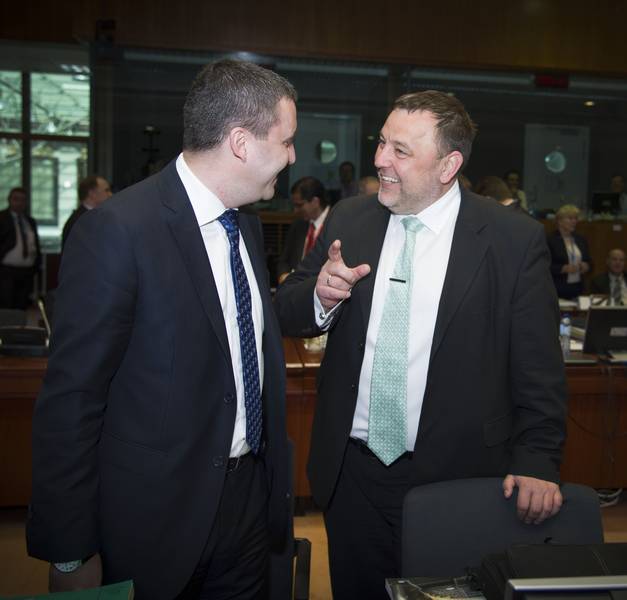 Vladislav Goranov, Sven Sester | © Council of the EU
Vladislav Goranov, Sven Sester | © Council of the EU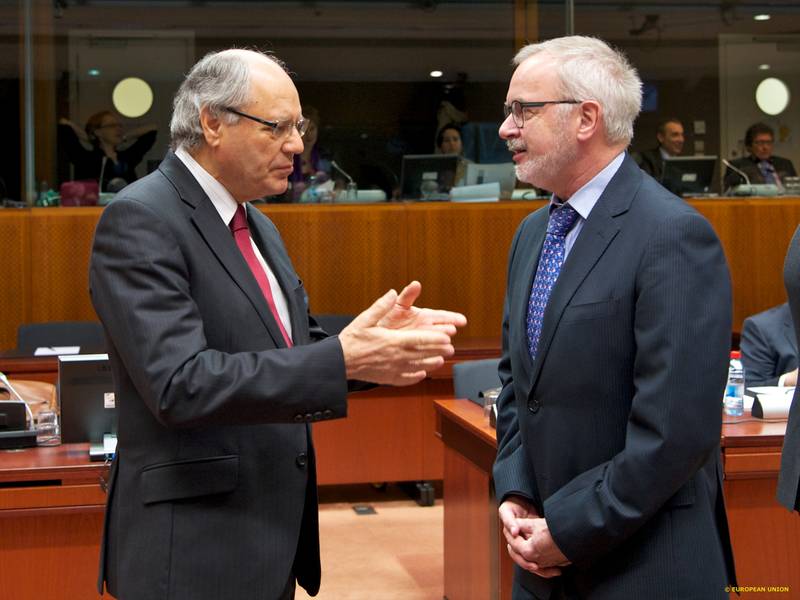 Edward Scicluna | © Council of EU
Edward Scicluna | © Council of EU